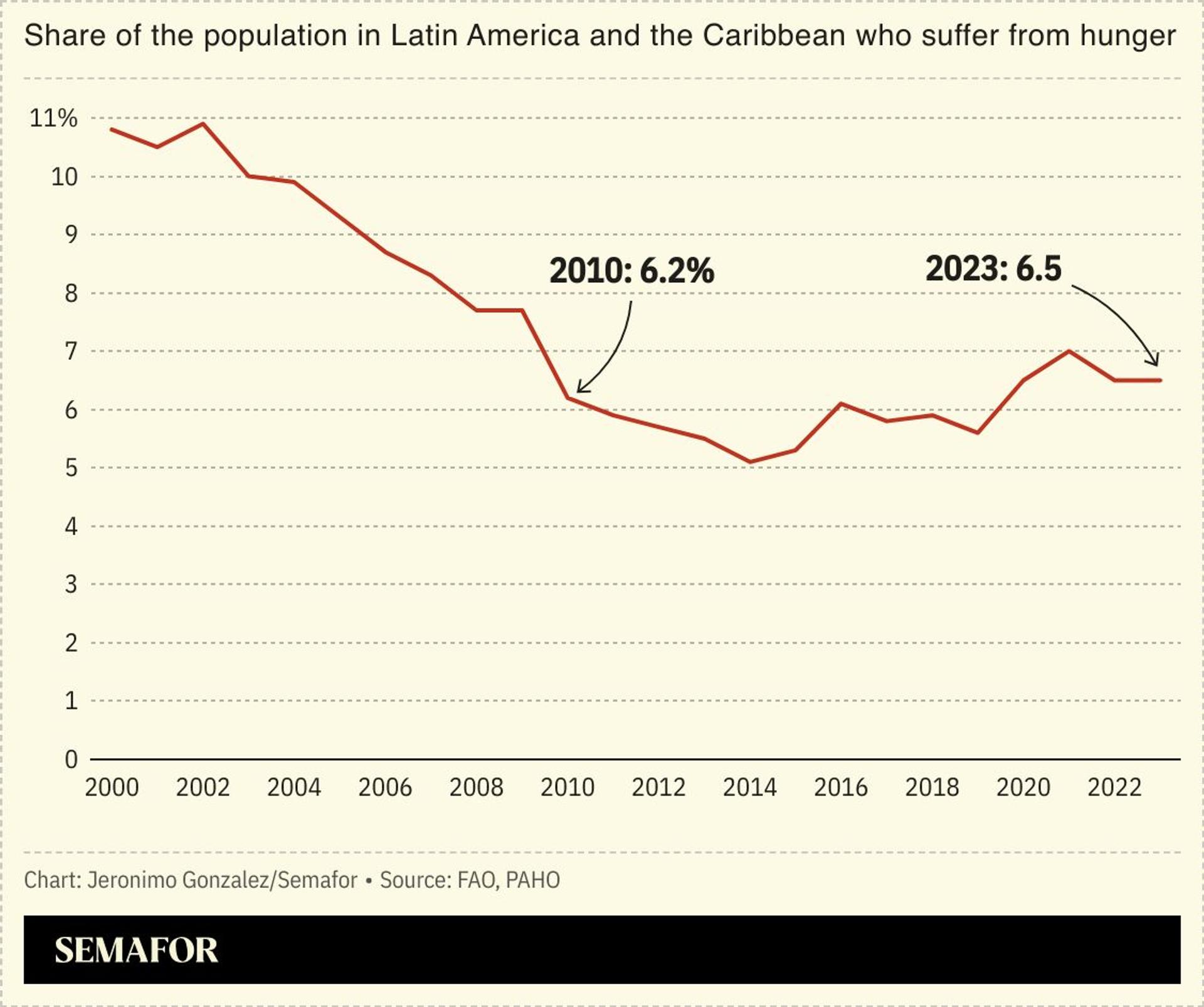The News
Latin America is grappling with a worsening food crisis, despite being one of the world’s biggest food producers. Almost a third of people in the region suffer from at least moderate food insecurity.
After more than a decade of progress in reducing hunger, the COVID-19 pandemic wiped out those gains, experts said, pushing an additional 48 million people into food insecurity compared to ten years ago. In Argentina, the number of people who experience food insecurity has more than doubled since 2017.
In response, regional governments have made the food crisis a top priority, Americas Quarterly reported. “Hunger is not natural. It is, above all, the result of political choices,” Brazilian President Luiz Inácio Lula da Silva said.

SIGNALS
Latin America is experiencing a ‘food paradox’
Latin America has become a global “breadbasket,” Americas Quarterly noted. Three out of four of all the world’s avocados are produced on the continent, which has the world’s largest regional agricultural surplus. And yet, hunger in the region today resembles the situation 15 years ago, a UN food economist said. A focus on exports and rising inflation in many Latin American nations has led to increasingly high prices for locally grown food. “It’s a perverse system,” a former UN agriculture official said, adding that the dearth of fresh food has meant more people eating cheaper, processed food, which has in turn caused a spike in obesity. Governments, meanwhile, seem unwilling to take responsibility for the crisis, a former Peruvian official said: “If you ask: ‘Who is responsible for food security in Peru?’ the answer is: nobody.”
Argentine president pushes extreme austerity measures
Argentina’s President Javier Milei has pursued an austere economic agenda since taking office last year that is estimated to have pushed more than half of the country’s population into poverty. While controversial, his measures have also resulted in Argentina seeing its first budget surplus in years, according to the BBC. Yet, “for everyday citizens, Milei’s austerity has been devastating,” Foreign Policy wrote, with many more experiencing food insecurity as the cuts deepen, which could give rise to anti-Milei political movements, increasing the sense of popular economic uncertainty. “Most people agree that … everything is either going to collapse or, somehow, [Milei is] going to survive politically long enough to show the benefits of his policies,” one expert told the outlet.


